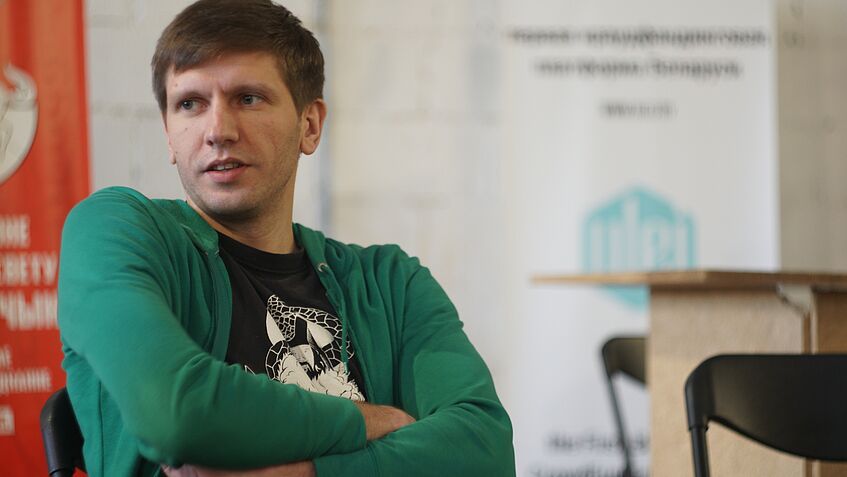
© Lina Miadzvedzeva
Gleb Koran
PhD-student of Philosophy at European Humanities University in Vilnius
Born and currently resides in Minsk. Now studying in “Belarusian University in exile” in Vilnius.
BA of Economics (Belarusian Institute of Law), BA of Information and communication (EHU, Vilnius), MA of Sociology (EHU, Vilnius).
Author and editor of internet-journals «Prasvet: socialism, science and culture» (http://prasvet.com), “Informational-discussion Internet-portal Left.by ”, “September” (http://september.media).
With academic activities (studies, publications, conferences, research projects etc.) got specific post-soviet job experiences as order-picker on logistic center or supervisor on local Uber-partner.
Academic interests: (post)Marxism, political philosophy, media studies, internet studies, critical theory, East European and post-soviet politics.
Abstract
"Affectiveness" of New Media: Digital Threats on Democracy
Early scholars of new media saw internet as new free self-productive media which can transfers its own form on society at large. But with emerging of some kind of internet-monopolists (Google, Facebook etc.) such techno-optimistic point of view clashes with works of new generation of new media theorists. I am suggesting that such properties of new media as interactivity and common creation of content in contemporary political condition of "populist turn" and economical condition of neoliberalism lead to producing of "affectiveness" which endangers democracy. The last one I understand as possibility of people solve political questions as independent and rational persons. I see bad condition of neoliberalism mostly not as lack of competition in new media sphere, but as contemporary view on new media sees last as usual capitalist enterprises which can save their own "commercial secrets". Usual mechanism of Page Rank algorithm on Google or news feed on Facebook are such secrets which are not free to discuss in society. "Affectiveness" in such case understood as possibility of users of new media take and distribute lots of unverified information through "closed" mechanism of new media. Good example of such distribution is rise of Alt-Right internet communities, but in my speech I want to concentrate on some specific post-soviet and Belarussian cases of new media "affectivity".
Programme: Panel 12, Friday, 7 September 2018, 13:00-14:30